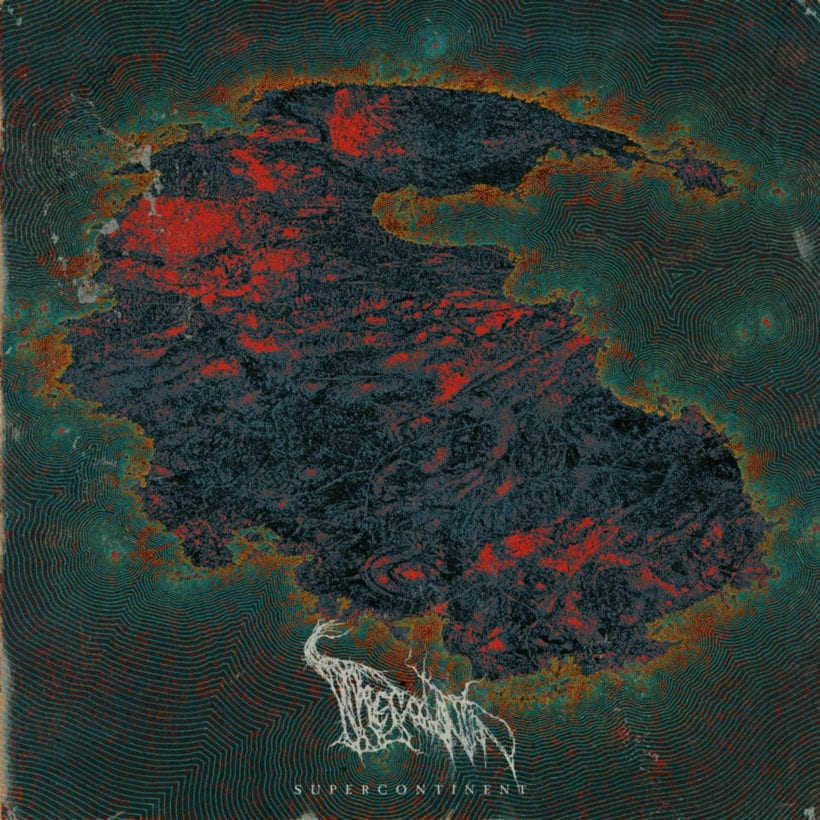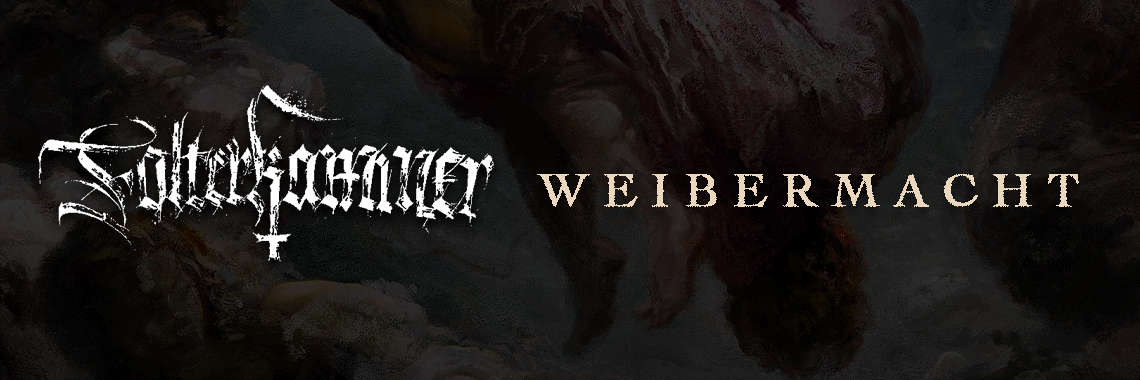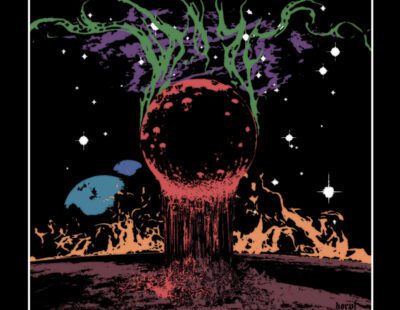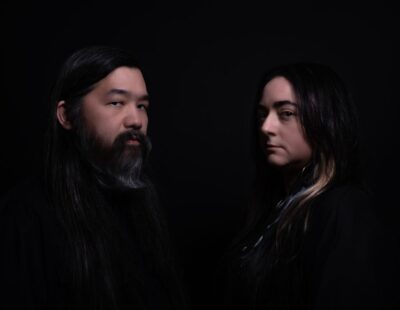
After forming in 2016, the Rome-based duo Thecodontion went on to release a demo and an EP of their unrefined and low end attack. Only Bassist G.D. and vocalist G.E.F. make up Thecodontion so in order to convey their primordial black/death metal the band employs session drummers and guest musicians. After developing and killing it with an aberrant sound of blast beats, bass rumble and blood-chilling, noisy solos that perfectly embodied the idea of stalking, prehistoric reptiles, the duo saw fit to evolve. 
Supercontinent comes as the result of that conscious evolution. A story of the formation of the earth in 11 parts, Supercontinent is a focused yet imaginative, mind-blowing journey through the geological record.
Supercontinent
What message do you have for our readers who will be hearing Thecodotionn’s all-bass death metal destruction for the first time with Supercontinent?
G.D.: Supercontinent is very different sounding compared to Thecodontia and Jurassic. The songs are way more complex this time. We hope you enjoy its more chaotic moments and the calmer, more melodic ones equally. We are very proud of it and we think it is really unique.
G.E.F.: Listeners who aren’t familiar with us already are going to hear a rather peculiar album. Musically, it is based on opposites between darker-sounding rhythm sections and melodic, often dreamy lead parts. There is some vocal experimentation as well, we tried to maintain a ‘narrative’ approach in that sense too.
What themes specifically are explored on Supercontinent? How are these themes brought to life by your bass-heavy sound?
G.D.: As the title suggests, the record is a concept album about supercontinents, starting from the earliest one “Vaalbara,” to the latest “Pangaea,” which contained most of modern-day landmasses (and it is amazingly depicted on the cover artwork by Chaos Echoes’ Stefan Thanneur). In a time span of a billions of years, cratons slowly drifted apart and collided with each other, and sea levels altered, forming different supercontinents over the course of time. Interludes are instead about the superoceans which surrounded them, chronologically as well (“Gyrosia” to “Panthalassa”). The booming sound of the distorted bass fits the prehistoric theme of the record and we tried to convey the collisions and drifting of the continents with a more atmospheric riffing this time. With lead sections and solos we also tried to depict a soundscape similar to slow moving pieces of molten lava, if you will. The four interludes are calmer pieces of music, we didn’t want to explore a different sub-theme with the same sound as the main one, so probably the absence of heavy distortion fits the water-themed imagery better.
G.E.F.: The album is about the formation and dissolution of ancient prehistoric supercontinents. It was a great challenge conceptually since an immense time span is covered, we might say there is a sort of ‘changing of the times’ sub-theme as well. The central aspect of the bass is perfect to explore primordial ages sonically, and the clash of ‘light’ and ‘darkness,’ melody and ‘filth’ conveys an image of a very distant, dark, yet unreachable and dreamlike antiquity. We live and thrive on opposites, so Supercontinent does too.
How has the band evolved musically on this release?
G.D.: The demo and the EP were a lot more straightforward and faster, probably closer to what you would call ‘war metal’ (minus the imagery) or black/grind. Track lengths are sometimes 3x those of our early material and there is a lot more atmosphere, slower-paced moments and many more riffs. Solos used to be super fast blistering notes, while on Supercontinent there are several wailing, melodic leads that pop up amidst the chaotic riffing. The four non-metal superoceans-themed instrumentals are also a new musical element for us, being closer to progressive rock and fusion.
G.E.F.: We felt that the black/grind/war metal style of our first two releases was sort of limiting for us, so we wanted to develop more complex ideas, there is a sort of sense of progression in our music this way as well. There are some elements of our early style nevertheless, like [the riffing structures of] “Vaalbara” and “Kenorland.” Thecodontion is an ever-evolving creature anyway and we are going to explore some new musical directions soon in our upcoming material.
How would you describe the recording experience at Snakes Studios? What made you go there in the first place?
G.E.F.: We recorded the album at Snake Studios following the advice of Marco Salluzzo (Necromorbus Studio) since we’ve already had a deal with him for mixing and mastering the record. It was very fun, we worked on the same wavelength in a relaxed and familiar environment. We feel this is very important in order to accomplish something, the personal aspect is paramount.
What are your plans moving forward to promote Supercontinent?
G.E.F.: We have three split releases coming up, the first one is with UK noise/black metal one man band Vessel of Iniquity and our tracks were recorded during the Supercontinent sessions. We already have some ideas for our second full length album, but we have no hurry right now. We hope to promote Supercontinent with live gigs too after the Covid emergency.







